5 reasons to learn a new Programming Language in 2020

Bruce Lee has once famously quoted “I fear not the man who has practiced 10,000 kicks once, but I fear the man who has practiced one kick 10,000 times”. In year 2020, do you need to learn a new programming language or do you need to work on the languages you already know like Bruce Lee has said? Like many other questions, the answer is: it depends.
- 0 Comments
- Jan 15, 2020 10:00:00 AM
- Posted by Natalia Galvis
- Topics: Robotics, EdTech, STEM, Coding, Robots,, programming, Edchat
Unlocking the Code for Robotics in the Classroom
Teaching robotics to elementary students can enhance sensory learning, improve socialization, provide opportunities for hands-on innovation, and raise the level of rigor.
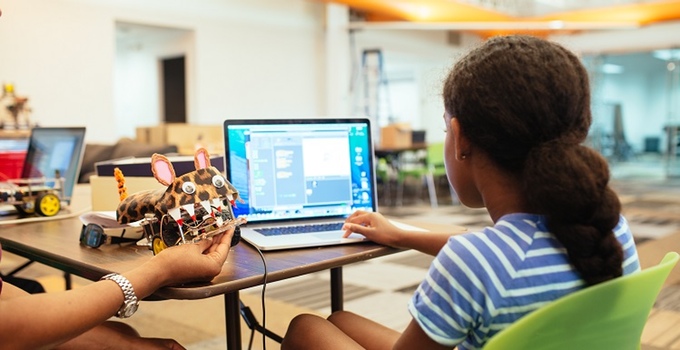
- 0 Comments
- Dec 17, 2019 10:10:00 AM
- Posted by Natalia Galvis
- Topics: Robotics, EdTech, Education, Computer Science, code, Coding, Edchat
How to Get Started Teaching Coding
I first learned about coding and computer science (CS) in college about 20 years ago. Looking back, not much has changed in the foundational concepts or core practices in CS. What has changed is who can teach it and where it can live in the curriculum—today educators in any subject can teach coding.

- 0 Comments
- Dec 4, 2019 10:10:00 AM
- Posted by Natalia Galvis
- Topics: Robotics, EdTech, Education, Coding, Codificación, Edchat
Why Computer Science Should Be a High School Graduation Requirement
Computing is an integral part of every aspect of our lives, from how we connect with each other to the way we do our jobs and get around. Computing is the number one source of all new wages in the U.S. economy and there are currently 500,000 open computing jobs across the country.

Yet, according to a Code.org report, only 15 states require all high schools to offer computer science. Many parents, educators, and education institutions are calling for computer science to be a high school graduation requirement. As one commentator pointed out: Schools teach math to students regardless of whether they want to become mathematicians because it is foundational. The same is true of computer science. There are a number of benefits to taking computer science in high school.
- 0 Comments
- Nov 18, 2019 10:30:00 AM
- Posted by Natalia Galvis
- Topics: EdTech, STEM, Education, Computer Science, Coding, STEMchat, Edchat, Computational thinking
How Coding Should be Taught To Kids
Parents and educators across the country understand the importance of teaching kids how to code. Not only can it help them learn valuable skills that they can use into their technology-driver future, but it also helps them learn to approach problems differently. But determining the best method for teaching a child to code isn’t always obvious.
In most cases, people agree that a traditional textbook approach is insufficient for subjects like coding. While the idiosyncrasies of the language can be introduced that way, it is difficult to assimilate the information until it is in use fully. But sticking children in front of a blank screen and having them write line after line, though functional, isn’t very inspiring or even interesting.
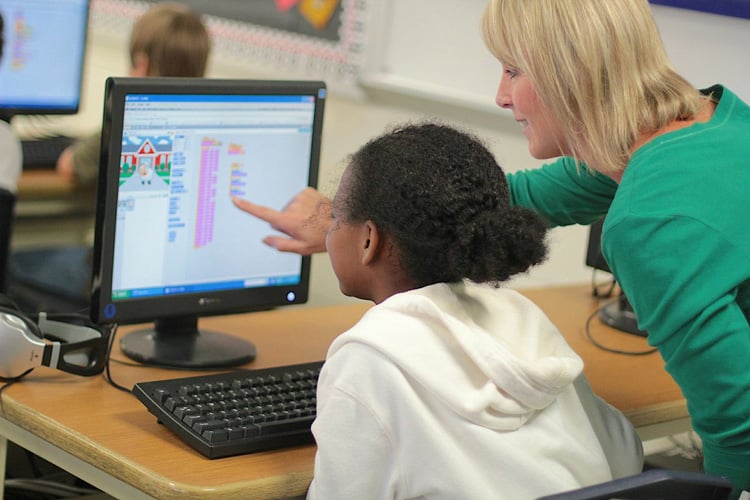
If you want to capture the interest of young students while giving them access to a valuable skill set, then turning to games may be the ideal method.
- 0 Comments
- Nov 11, 2019 10:15:00 AM
- Posted by Natalia Galvis
- Topics: Robotics, EdTech, STEM, Education, Coding, Codificación, STEMchat, Edchat
6 tips for teaching kids to code
Programming is a creative activity that any kid can engage in. Your child might not care about writing data processing algorithms, but they might enjoy creating games, programming music, designing websites, or just playing around with code.
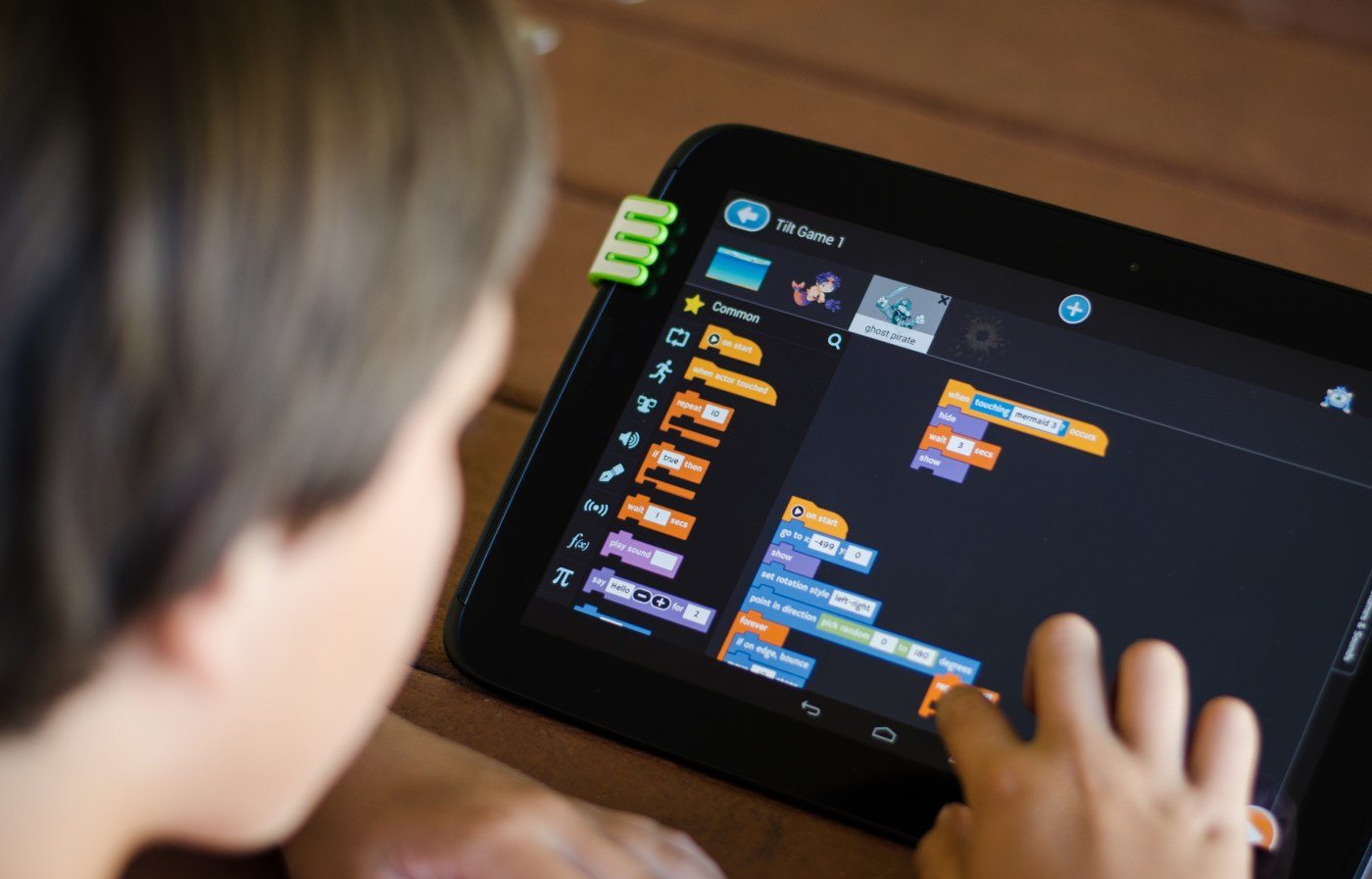
- 0 Comments
- Sep 13, 2019 10:00:00 AM
- Posted by Natalia Galvis
- Topics: EdTech, STEM, teachers, Coding, programming, Edchat
The upgraded Cubelets app!
Have you used the cool new features of the revamped and upgraded Cubelets app yet? The app was designed not only to be another fun way students can play with Cubelets, but a learning experience where they can manipulate software before moving on to writing their own code.

- 0 Comments
- Aug 1, 2019 5:00:00 PM
- Posted by Natalia Galvis
- Topics: EdTech, STEM, Coding, programming, STEMchat, Edchat
7 Everyday Tasks Brought to You By Code
Long before the Internet of Things began exploring a computerized world with app-controlled home thermostats, lights, and security, computers changed the way we live. Did you know that these 7 everyday tasks are only possible because of computer code?

- 0 Comments
- Jul 24, 2019 11:24:24 AM
- Posted by Maria Alejandra Calcetero
- Topics: EdTech, STEM, Coding, programming, STEMchat
The Power of Storytelling in the Classroom: 5 Ways It Can Be a Great Help
People say unbelievable things all the time and often we may wish they were true. These stories touch our imagination, as we feel ourselves playing a role in the story in both time and place. More often than not, they are make believe and are told to attract the audience, whether it's a small group of friends or family or a larger group such as a school classroom or even a conference attended by the business community.
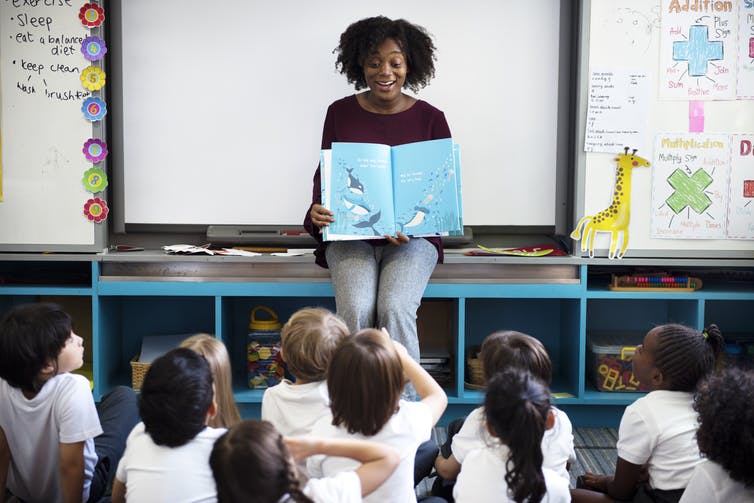
When it comes to teaching in the classroom, research shows that children tend to retain more knowledge when they can connect it with a classroom activity. One of the most common classroom activities is storytelling. Children love listening to their teachers telling stories. While they listen, they begin to focus and follow the story through until its end.
- 0 Comments
- Jul 17, 2019 11:13:52 AM
- Posted by Maria Alejandra Calcetero
- Topics: Robotics, EdTech, STEM, Coding, Makerspace
Combine Maker Activities and STEM Lessons
You may be familiar with maker spaces. In one form or another, hands-on teaching has always involved kids in “making.” Today’s new focus on maker spaces is taking making to a whole new level.
Visualize a space filled with an assortment of materials and tools where people explore ideas together, create, and invent. Now think of such a space existing in a school – a space where students can go to imagine, investigate, figure things out, and design prototypes.
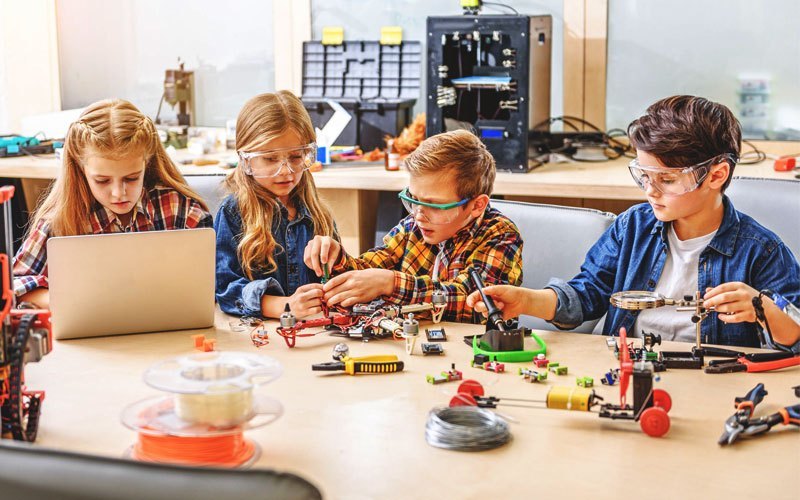
Personally, I like to think of maker spaces as spots that fuel curiosity-driven learning – engaging spaces that nurture your students’ curiosity and creativity. Just think how productive your STEM lessons would be if they were driven by student curiosity!
- 0 Comments
- Jul 16, 2019 10:46:38 AM
- Posted by Maria Alejandra Calcetero
- Topics: Robotics, EdTech, STEM, Coding, Makerspace
Relevant Posts
Popular Posts
Subscribe to Email Updates
-
I Want To Learn MoreADDITIONAL INFORMATION


